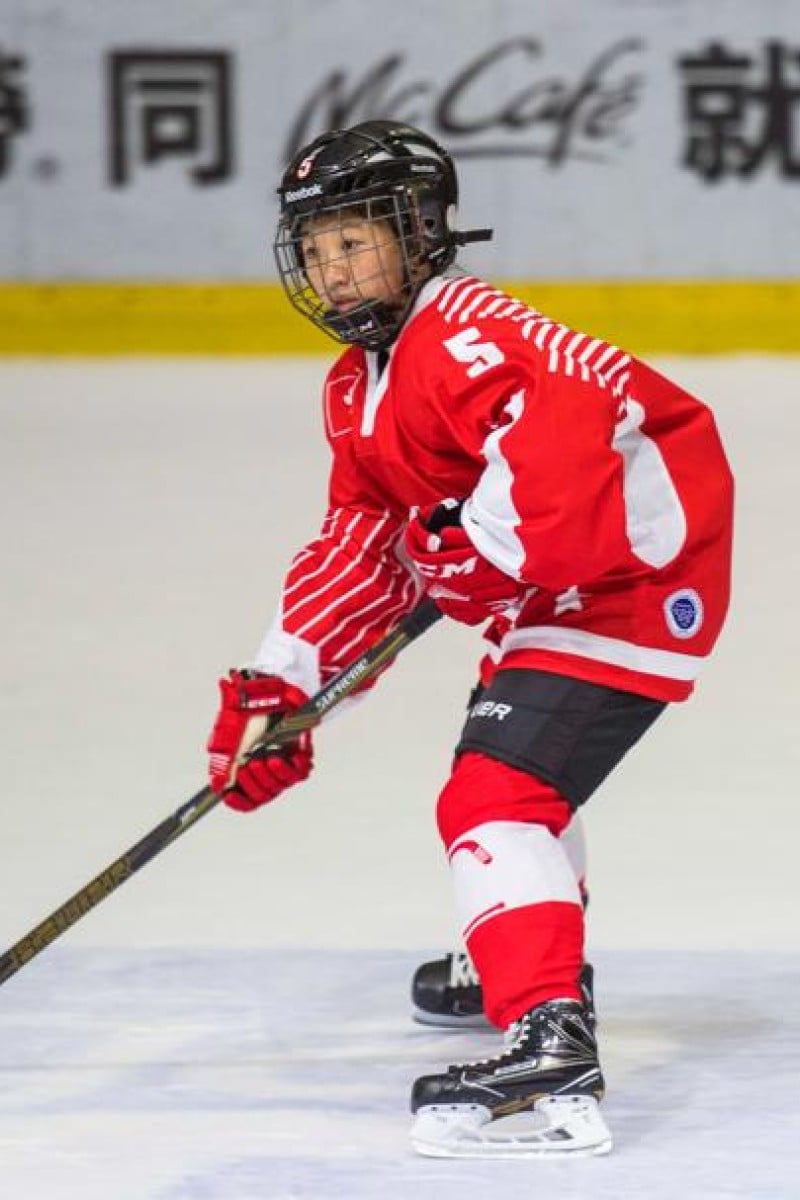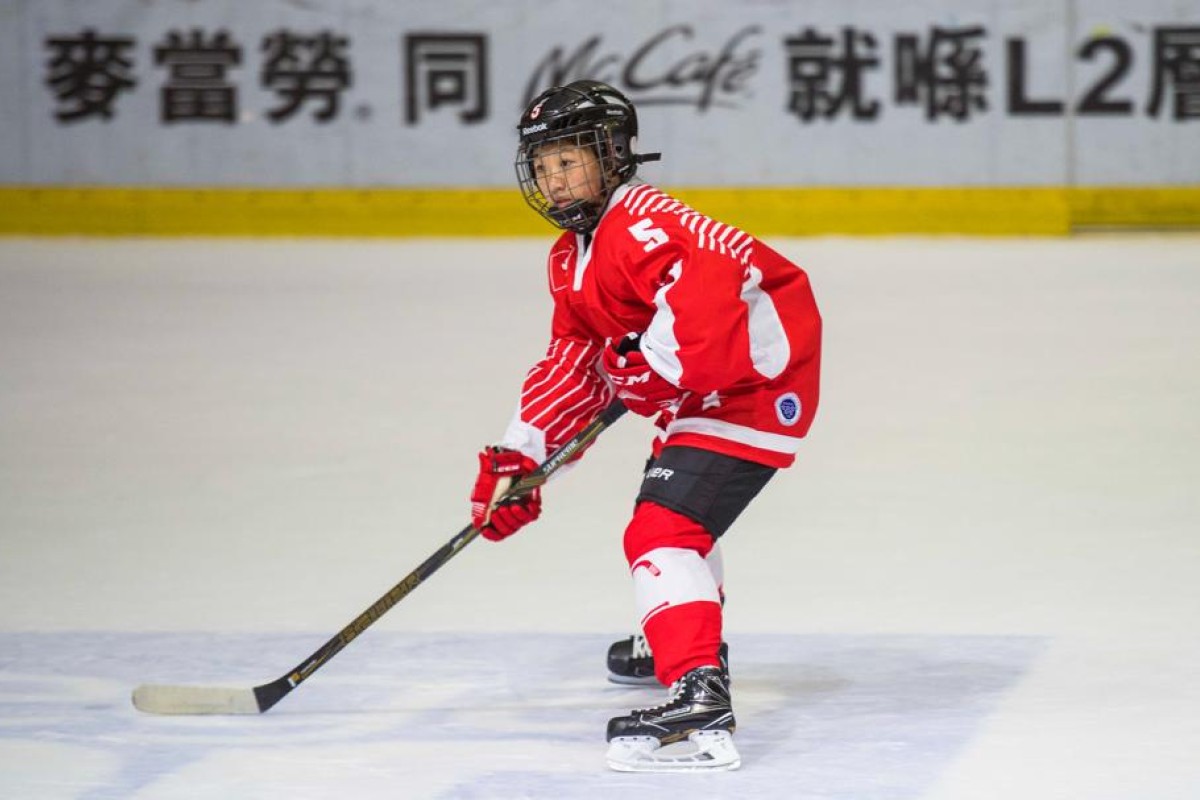
The Island School student talked to Young Post about her days as a rookie, and her unusual debut into the international ice hockey arena
 Tired of being treated differently by other male players, Chloe would put her hair up in a bun and hide it in her helmet.
Tired of being treated differently by other male players, Chloe would put her hair up in a bun and hide it in her helmet. The first major international ice hockey tournament that most players in Hong Kong take on is the world championships. Chloe Chan Pui-wing, however, went one further and made her international debut at the Olympic Games qualifiers in 2016.
It was, the Island School student told us, on a whole other level. “I was really nervous,” she confessed.
Despite this, though, the most memorable of all the major competitions she has taken part in was the 2017 Asian Winter Games. This is because the Hong Kong team went up against some of the strongest ice hockey teams in the world, such as Japan, China, and Kazakhstan.
The Year 13 student said she was most impressed by the Japanese team’s skills. The players were of similar height and build to the Hong Kong team, but were far more skilled. Chloe, however, says it was because of a difference in time spent training.
“[We] train part time, while the Japanese team are professional players training full time,” the 18-year-old said.
Earlier this month, Chloe and the rest of the Hong Kong national women’s ice hockey team took part in the 2019 Ice Hockey Women’s World Championship Division II Group B Qualification. The event, held in Cape Town, South Africa, ran from January 13 to 18. While Hong Kong only managed to secure one win out of the four games they played, Chloe said they did their best, and that the tournament had been a great way for her to face her shortcomings.
“It could have been better,” Chloe admitted.
“I realised I really need to work on my passing skills.”
This is the third year Chloe, who wants to become a professional player someday, has represented the city in an international tournament. The defence player said she is not the most talented player, but added that she is always looking for ways to step up her game and is always willing to go the extra mile.
This is because there are too many ways an ice hockey game can go, so “knowing one set of tactics is obviously not enough”.
Chloe’s determination to push herself to her limits was born from the days when she trained alongside, and competed against, male players. There are no separate events for boys and girls in local school leagues and Chloe, who used to study at a local co-educational school, had to play with boys – many of whom were at least a head taller than her. Chloe, who disliked it when the boys tried to treat her differently and go easy on her, would often take steps to disguise her gender during games.
“I started to put my hair up in a bun and tuck it inside my helmet so they would think I’m a boy,” she said. “It worked.”
Looking back, Chloe is thankful for the challenges she had to face from her male opponents, as they motivated her to work harder and were key to her quick improvement in the sport.
The Hong Kong team is made up of a group of experienced ice hockey players, which is good for budding players like Chloe. Still, despite knowing they can pass on everything they know about the sport to her, Chloe said she is also very aware that she cannot always rely on the help of others all the time. This is why she wants to help lead a new generation of players become the new pillars of the team.
The number of ice hockey plays that come from Hong Kong is on the rise, and more schools than ever are taking an interest in the sport. It also is true, though, that most of the national team players only train part-time, unlike football or tennis players, for example. To attract more people to ice hockey, and to gain more government resources and support, Chloe said the team’s performance is what matters the most.
“The way to prove we deserve more support is through results,”
she said.
“That is why we’re working hard, and how we’ll prove our worth.”